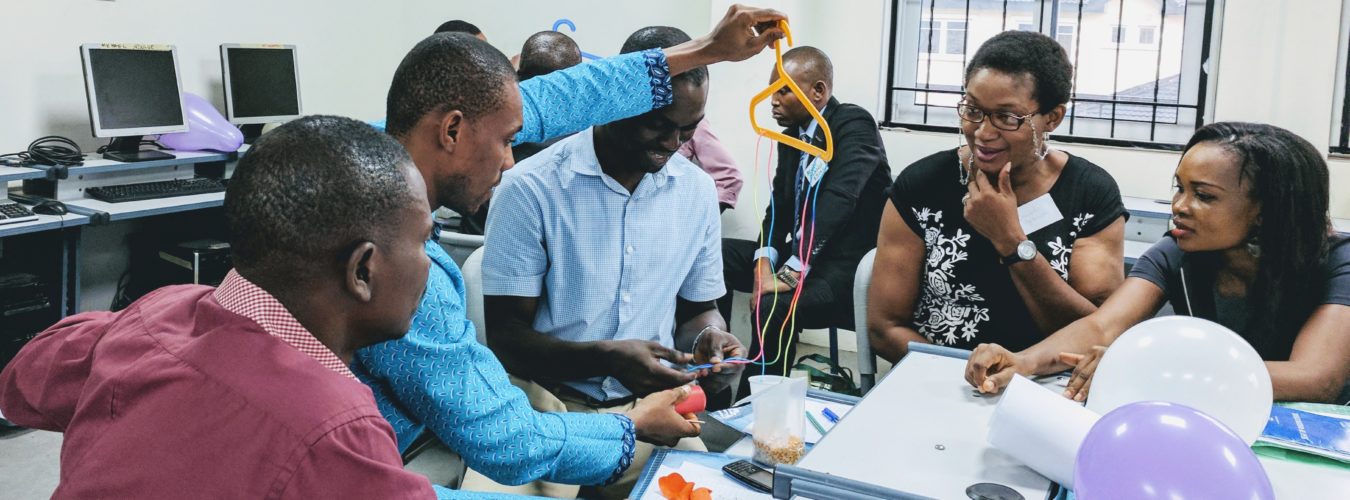Our world is in a constant state of change and evolution. In fact, the word “change” itself will probably be used in the future as a hashtag to describe the times in which we live.
The schooling system is one area that truly requires change—this fact has been stated across channels, and by various opinion leaders and governmental institutions all over the world. But, if we want to change the schooling and education systems, we have to consider a few questions on how we want to go about producing and directing that change:
- What are we trying to escape from in the existing system(s)?
- Towards what goal are we running?
- Do we know exactly where “education” is supposed to go, or are we just standing on one side of the ocean, looking ahead, curious about what’s on the other side?
The Prussian education system¹ is the type of schooling that I know from my childhood, and is also known to my children by the same right. You’re probably familiar with it as well—it’s a very structured model of education, based around a fixed, pre-determined, universal set of knowledge and information. The switches between “learning time” and “break time” are marked by the sound of a ringing bell; and it generally follows a format where students are not meant to do the talking—rather, they do the listening. (Of course, if they want to talk, they must raise their hand and wait to be called on.)
As a parent, I sometimes find myself giving in to common Prussian values—for example, when my kids turn to me and say, “Mom, I’m wasting my time in school. Can I skip it and just study at home?” (Well… No.)
Interestingly enough, it’s becoming increasingly common to hear about parents who not only allow their kids to stay home—they actually stay at home with them, studying and learning together. Additionally, the number of alternate approaches to the “Prussian school model” is constantly increasing.
One of the most important catalysts of change is technology.
The technological revolution is just getting started. Mobile Internet (LTE, for example), the “cloud” (in which you can store and access any possible data), the Internet of Things (IoT), artificial intelligence (AI), virtual reality (VR), and robotics are all entering our professional and everyday lives.
All these developments and formats of information exchange have an impact on the labour market. Some professions become history, others give promise of finding a new job, backed with a very good income.
Has the schooling system noticed the change? Does the system help people to develop their skills, in accordance with the spirit of this change? Or, maybe our question concerning “the system” is too broad. In taking into consideration the current diversification of educational approaches, perhaps we’re better off asking which schools, rather than which system.
Nowadays, societies need creative professionals.
People want (and need) to learn how to solve problems. Future employees can expect numerous changes of places and forms of work, which are already increasingly dominated by flexibility, liquidity, and rapid changes. Therefore, no matter in what ways the schooling system reacts, people are already preparing for these changes. The question is whether they will be able to do this at schools, or in spite of schools.
*
Footnotes:
(1) The Prussian Education Model: In 1807, the King of Prussia, Friedrich Wilhelm III, ordered a school reform. With it, he introduced the concept of universal compulsory education and centralised learning—essentially, certifying teachers, setting reading lists, and designing universal programs to be taught across all schools—all of this was supposed to guarantee a proper education and the shaping of obedient, predictable citizens, officials, and soldiers. Students started and finished classes at the sound of a bell, as if ordered; and individual work and competing were encouraged—contrary to cooperation (which was thought to bring about rebellion). The system was effective in delivering disciplined workers and officials, ready for monotonous work. The first project of social engineering of such scale proved successful. Therefore, it soon began to spread across Europe and the rest of the world. Education has become a matter of state, a political issue, reflecting the priorities of a country’s current government. At last, compulsory schooling—granting education to children of peasants and workers who previously had not even dreamt of such a luxury—eventually became a tool of full control over citizens and society.
*
Visit
www.whybluesky.net
for lesson plans inspired by children’s questions
We welcome your feedback
—
The above is a cross-post which has been adapted from the personal blog of our CEO, Agata Wilam. Agata was on a travel mission to investigate a world of education worldwide. To read the stories she brought back, just search under the “Agata Wilam” tag.

